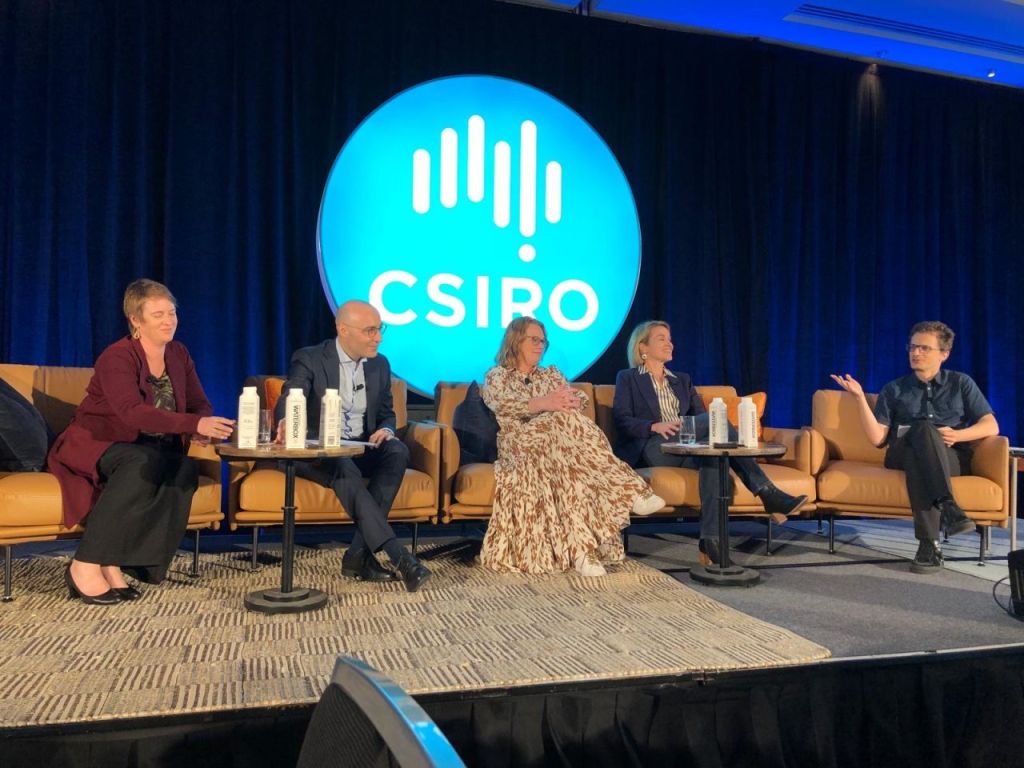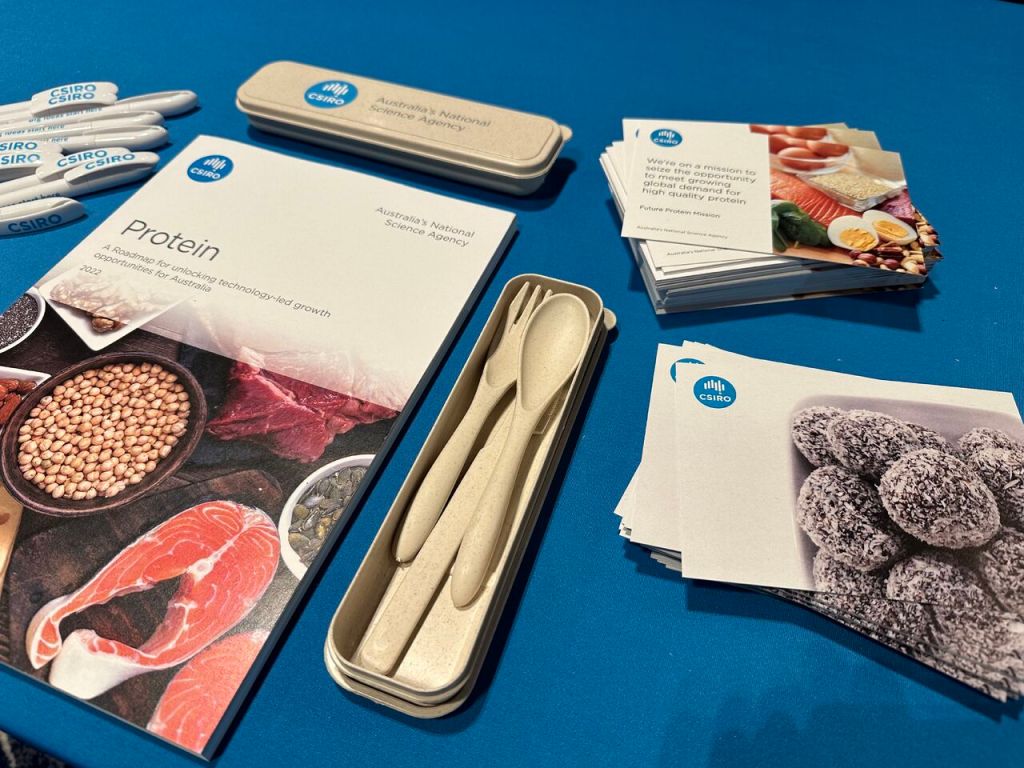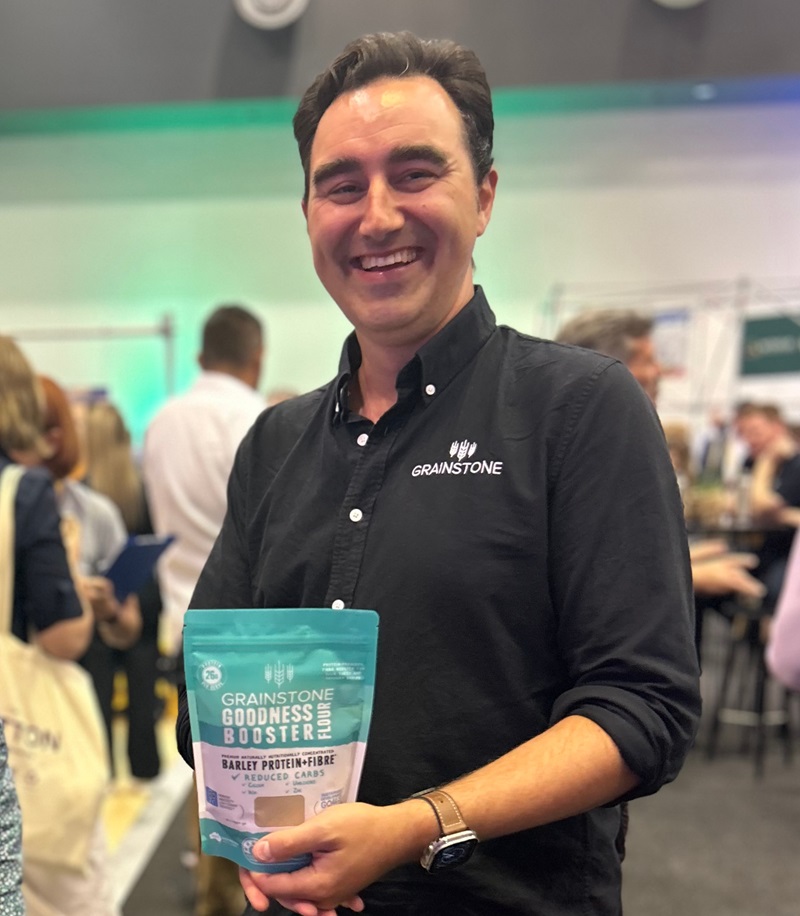Australia’s national science agency, CSIRO held its second Protein Futures conference, gathering experts to discuss how to sustainably feed a population estimated to hit 9.7 billion in less than a decade.
The symposium – which was held from 28 to 29 May at the Amora Hotel Jamison in Sydney – hosted a wide panel of keynote speakers who weighed in on the progess of the National Protein Roadmap developed by CSIRO and the path forwards for plant, animal, and novel proteins.
Experts presented on topics including current and future protein opportunities, consumers and nutrition, sustainability, the value-add circular economy, private investment, and the evolving protein ecosystem.
The event also included a pitch session, during which start-ups from different markets and spanning various areas of the novel proteins sector vied for an opportunity to collaborate with CSIRO to develop their products.
Among the companies and organisations represented at the event were Miruku; Vow; Harvest B; Cauldron Ferm; Eclipse; Food Recycle; Wide Open Agriculture; Made by Kade; Humpty Doo Barramundi; GrainCorp; Australian Agricultural Company (AACo); Kraft Heinz; Bega Group; Food Standards Australia New Zealand; The University of Queensland; UNSW; Grain and Legumes Nutrition Council; and the Australian Circular Ministerial Advisory Group.

A shift from ‘alternative’ to ‘complementary’ proteins
Among the hot topics discussed at the symposium was the challenge of attracting traditional meat eaters to consume plant-based products. One company that is particulary focused on overcoming this hurdle is Australian plant protein manufacturer Harvest B.
Harvest B Co-Founder & CEO Kristi Riordan spoke on the stumbling blocks she viewed as impeding the plant proteins industry. These included delivering the wrong messaging to consumers, such as trying to sell curtailing the traditional meat industry as the purpose of buying plant-based meat products.
Riordan emphasised that in order to change consumer behaviours and reach the mainstream, plant protein players needed to offer incentives and consider how fast change can occur. She cited the “health by stealth” sodium reduction strategy used by the UK government and Unilever over the past 20 years as an example.
Harvest B recently debuted its first range of products blending both traditional and plant-based meat, which the company views as a possible solution to the consumer adoption issue. The Good Food Institute (GFI) has described hybrid plant and animal-based meat products as a “…promising means to improve the cost and sustainability of animal-derived meat while improving the taste of plant proteins.”
CSIRO has said it is shifting the narrative of its Future Protein Mission from ‘alternative’ to ‘complementary’ proteins.
Riordan spoke to Future Alternative about the Future Proteins conference, describing it as, “a fantastic gathering of forward-thinking minds, exploring ideas and innovations that will redefine the landscape of protein production. It was inspiring to see so much dedication to creating sustainable and scalable solutions for the future.”

Handing global protein start-ups the microphone
The Future Proteins conference also held a pitch session featuring start-ups from CSIRO’s Australia-Singapore Venture Exchange Program (VEP), the science agency’s first cohort focused on future foods.

Out of the nine start-ups participating, Australian company Grainstone was selected as the crowd favourite and pitch winner. The company claims it can convert barley grain waste from the beer brewing process into high protein, high value food ingredients that can be baked into breads or other products. CSIRO said it is partnering with Grainstone to develop the technology.
Other start-ups that participated in the pitch session included: Allium Bio (Singapore), which produces high value food ingredients combining algae, fungi and other species; Cellular Agriculture Ltd (UK), which is focused cultivated meat and protein bioreactors; NutriV (Australia), which turns otherwise wasted vegetables into protein packed vegetable powders and products; and Seadling (Malaysia), which uses seaweed to produce functional food ingredients.
To stay up-to-date on the latest industry headlines, sign up to Future Alternative’s enewsletter.


